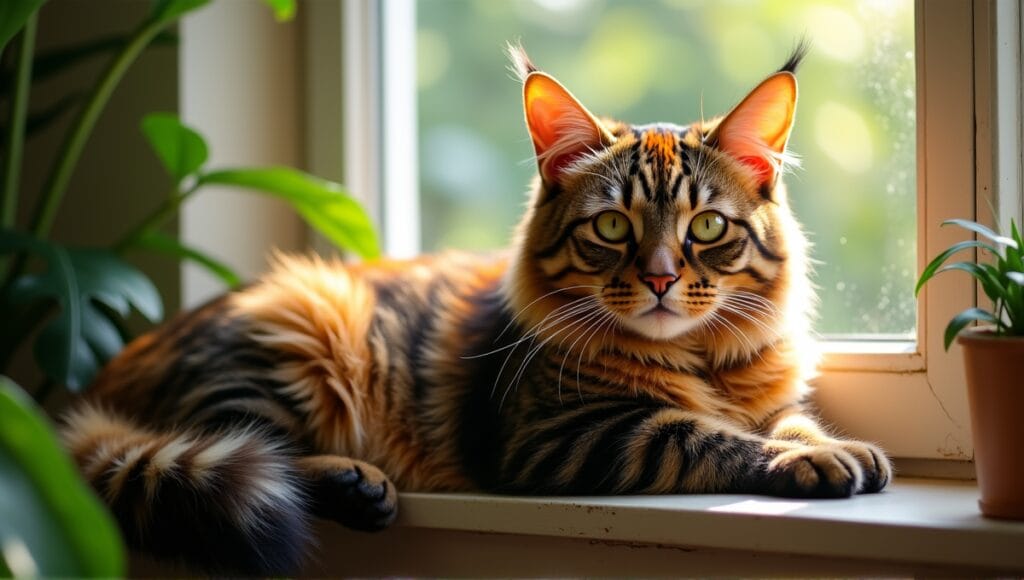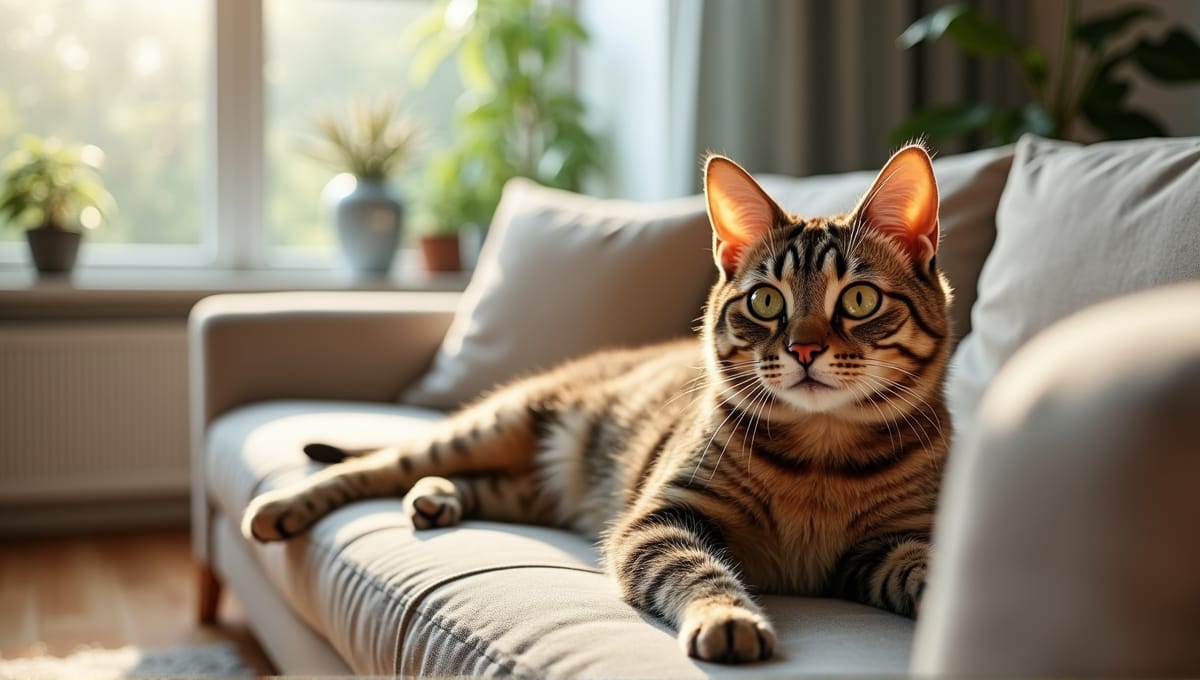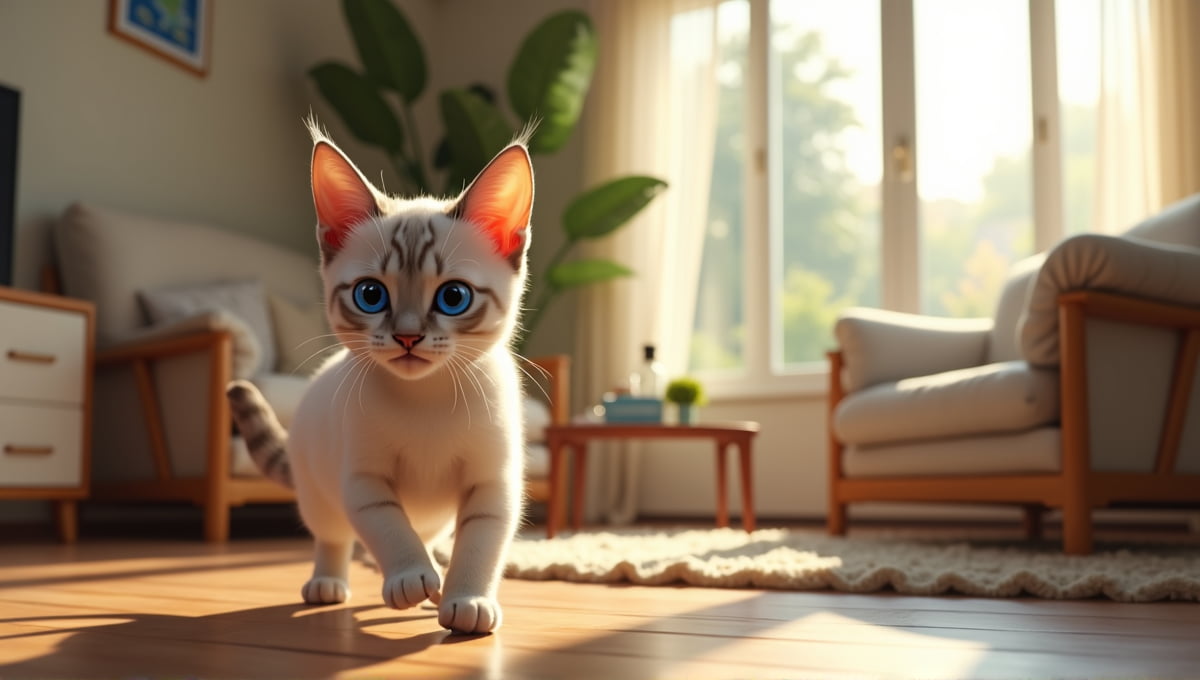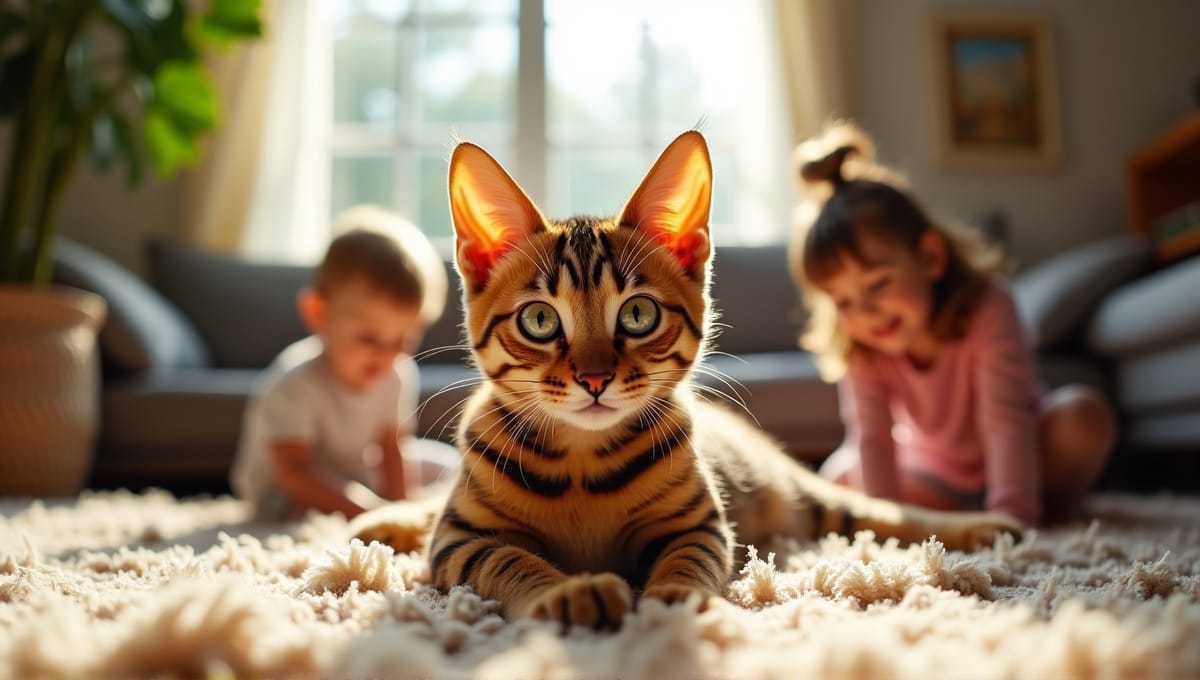Exotic cats are a source of fascination for many pet enthusiasts. We’re drawn to their wild beauty and the interesting quirks they exhibit. So how long do these beautiful animals live? I’ve done extensive research on exotic cat breeds, and I can tell you about their lifespans and what impacts it.
Here’s what you need to know about the lifespan of exotic cats and key considerations before you decide to make one a pet.
Understanding Exotic Cat Breeds and Their Lifespans
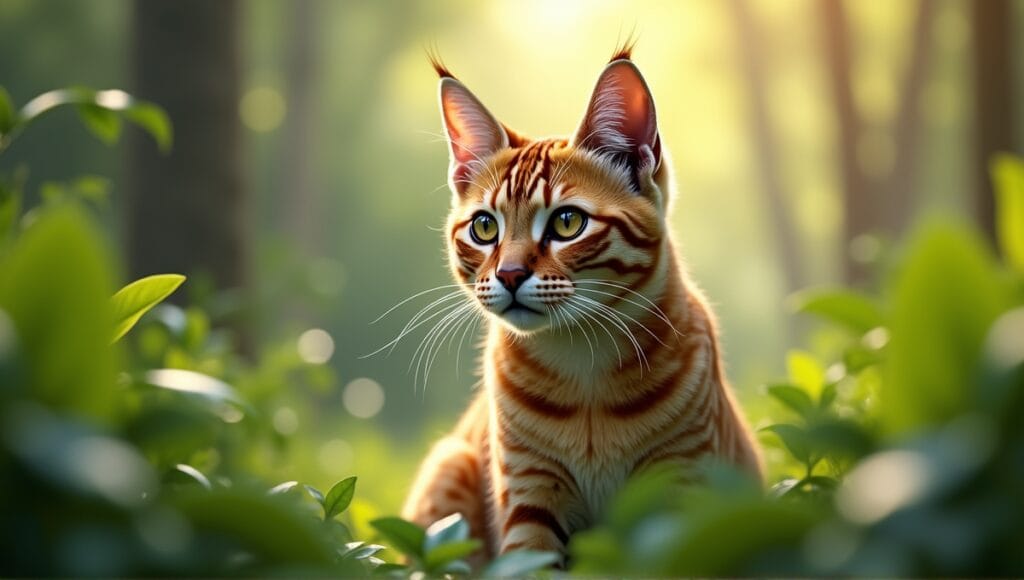
Exotic cat breeds are essentially wild cat species or a cross between wild and domestic cats. I’ve always found these animals to be intriguingly beautiful. They are not your typical cat breeds as each exotic breed often has a selection of unique physical characteristics and personality traits. Their lifespans also vary significantly depending on the breed.
Common exotic cat breeds are:
- Bengal
- Savannah
- Chausie
- Serval
- Caracal
- Ocelot
- Margay
Exotic cats’ average lifespan ranges from 12 to 20 years, which is similar to domestic cats. However, some breeds of exotic cats live much longer or shorter lives. Their genetics and the level of care they receive will largely determine their lifespan.
Most exotic cat breeds require specialized care, unlike the majority of domestic cats. They have specific diet requirements and habitat needs. Failing to meet these needs can shorten their lifespan versus a domestic cat. Therefore, it’s essential to learn about their care requirements before deciding to buy one.
Factors Influencing Exotic Cat Longevity
The lifespan of an exotic cat is largely influenced by genetics and cat breeding. Well-bred cats from a reputable breeder will live longest and experience fewer genetic health problems. Similarly, diet and nutrition play a major role in an exotic cat’s lifespan. Exotic cats need to eat a balanced diet designed specifically for their needs.
Exercise and environmental enrichment are also important for an exotic cat’s health. These cats are both active and smart, so they require both mental and physical stimulation to stay healthy. Additionally, stress levels and living environment will impact the lifespan of an exotic cat. A calm, low-stress environment is best for them to live longest.
Regular veterinary care is critical. Exotic cats require specialized vet care from vets who are experienced working with that specific breed of cat. Catching and treating health problems early will add years to their life. This means you should take them for an annual checkup and provide any other preventive care the vet recommends.
I’ve also seen how these factors can impact an exotic cat’s life. The right care makes a big difference in how healthy and happy they are.
Health Concerns Affecting Exotic Cat Lifespan
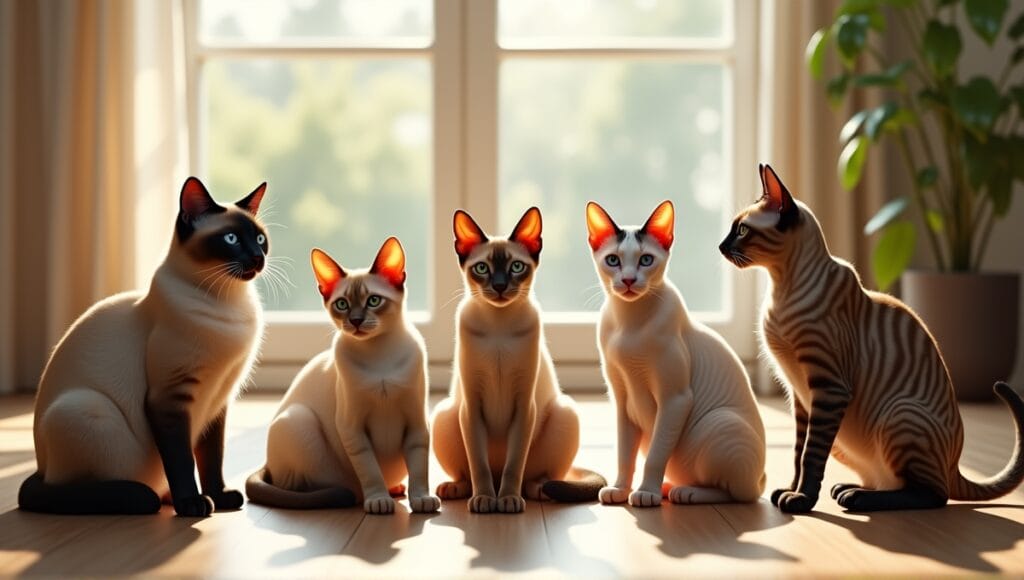
Exotic cats are at risk for various health problems, which can impact their lifespan. Some of the most common health problems exotic cats experience include:
- Hypertrophic cardiomyopathy
- Progressive retinal atrophy
- Hip dysplasia
Dental problems - Respiratory problems
Each breed also has its own unique set of health problems. For example, Bengals are prone to heart problems. Savannahs have digestive problems. Therefore, it’s important to research breed-specific health problems before selecting an exotic cat.
Inbreeding can have a major impact on the cat’s longevity. It significantly increases the risk that the cat will have genetic problems. This is a big issue for some exotic breeds that don’t have a large gene pool to pull from. Therefore, it’s important that these breeds are bred responsibly.
The key to ensuring your cat lives as long as possible is early detection and treatment of health problems. Regular vet checkups can help catch problems early, and if caught early, you can significantly improve your cat’s quality of life and longevity. Therefore, as a cat owner, you also play an important role in monitoring your cat for health problems.
Proper Care to Maximize Exotic Cat Lifespan
A nutritious diet is essential for exotic cats. They often have high-protein diet requirements just like their wild relatives. Therefore, watch portion sizes to avoid obesity. Overfeeding can result in health problems and a shortened lifespan.
Regular exercise and mental stimulation are a must. Exotic cats are active and need plenty of space to run and play. You can keep them mentally and physically healthy by offering climbing structures, puzzle toys, and interactive play.
Grooming and hygiene care will depend on the breed. Some exotic cats require minimal grooming while others may need regular brushing and nail trims. Proper grooming reduces hairballs and skin issues.
Implement stress reduction strategies to improve their quality of life. Design a peaceful environment with quiet, cozy spaces. Additionally, try to avoid altering their routine. Some exotic cats benefit from pheromone diffusers or calming supplements.
Adhere to a recommended vaccination and preventive care schedule. This will help prevent common diseases. Your veterinarian can create a customized plan based on your exotic cat’s needs.
Legal Considerations for Owning Exotic Cats

Regulations and restrictions on owning an exotic cat can vary significantly. Some countries or states have very strict regulations, while others have more relaxed policies. Therefore, it’s important to check the laws in your area before considering an exotic cat.
Many areas require permits and licenses to own an exotic cat. These permits can be expensive and difficult to obtain. Some locations also have specific housing or insurance requirements or may not allow certain breeds of cats at all.
There are also ethical considerations regarding owning an exotic cat. These animals have very specific needs that are nearly impossible to meet in a domestic setting. Therefore, many people argue that it’s unethical to keep them as pets. However, others believe that as long as you can provide for all of the cat’s needs, owning an exotic cat is perfectly ethical.
There are several alternatives to owning an exotic cat. Many cats that look like exotic breeds exist, such as the Bengal. You can also volunteer at a sanctuary or donate to conservation efforts. There’s no need to keep an exotic cat if you can’t meet all of its needs.
Lifespan Comparison of Popular Exotic Cat Breeds
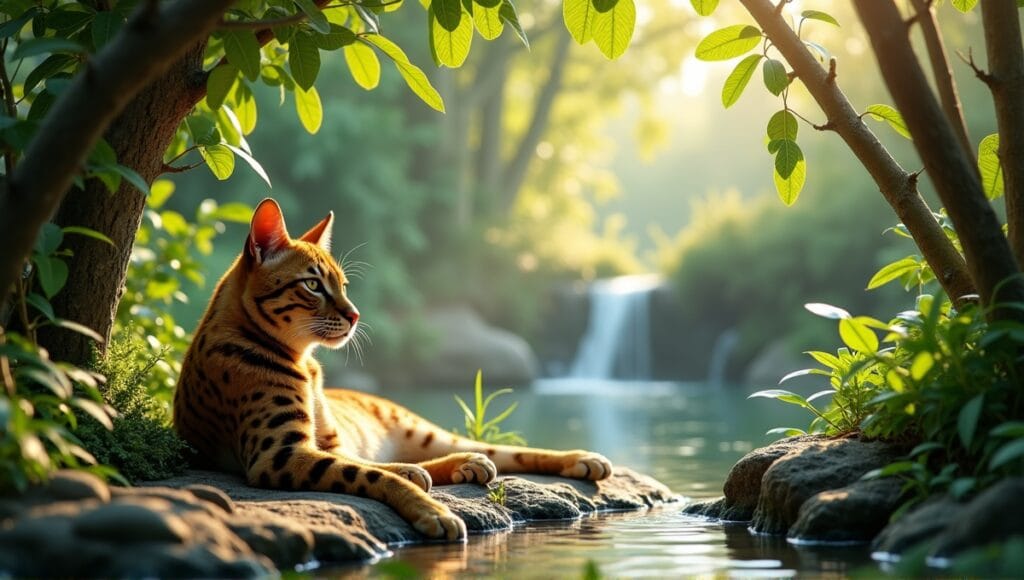
Here’s a lifespan comparison of the most popular exotic cat breeds:
| Breed | Average Lifespan |
|---|---|
| Bengal | 12 to 16 years |
| Savannah | 12 to 20 years |
| Chausie | 12 to 14 years |
| Serval | 20 to 25 years |
| Caracal | 12 to 17 years |
Lifespan variations occur due to genetics, diet, and general care. Generally, larger exotic cats have shorter lifespans, and smaller ones live longer.
Some breeds tend to live longer than others. For instance, a Serval can live up to 25 years in captivity, while a Chausie might only live 12 to 14 years.
It’s more challenging to find accurate lifespan data for rare cat breeds as there are fewer individuals to track. Therefore, you should always defer to the expertise of breeders for the most accurate information.
Environmental Factors and Exotic Cat Longevity
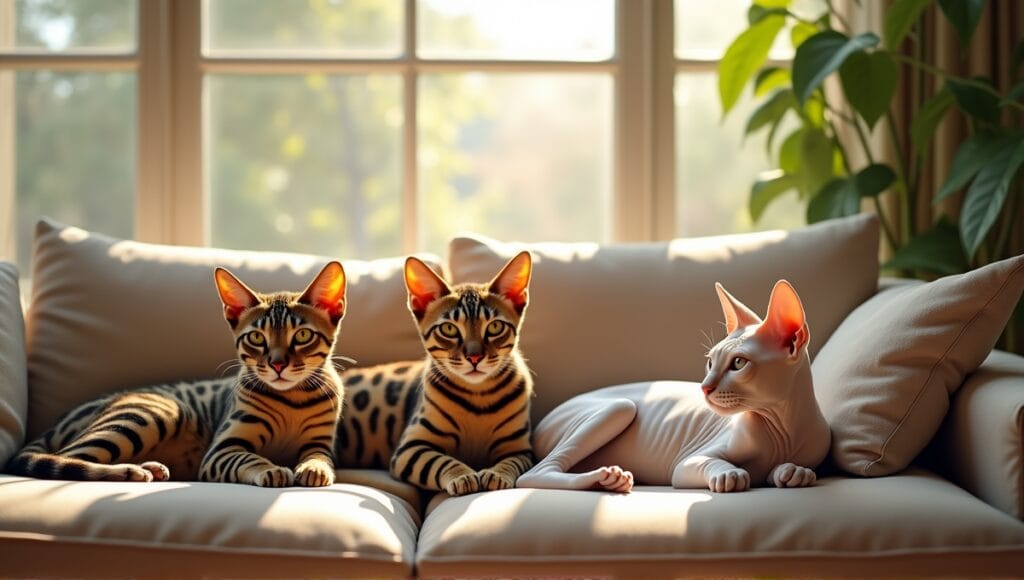
Indoor vs. outdoor living has a big impact on an exotic cat’s lifespan. Indoor cats live longer, as they’re safe from cars, predators, and diseases. However, exotic cats require plenty of space and enrichment if kept indoors.
Climate is another consideration that varies by breed. Some exotic cats are adapted to very specific climates. For example, Bengals can tolerate cooler climates better than Savannahs. Ensuring you provide an appropriate climate setting is critical to their health and longevity.
Proper housing and enclosures are also key. Exotic cats need more space than a typical domestic cat, and they need items to climb on, hiding spots, and room to roam and play. Providing the right environment can make a huge difference in their quality of life and lifespan.
Socialization also impacts lifespan. A well-socialized cat will experience less stress, which will contribute to better overall health. However, some exotic breeds are naturally more solitary. With all exotic cats, it’s important to understand and respect their breed’s specific needs and temperament.
Nutrition and Diet for Optimal Exotic Cat Lifespan
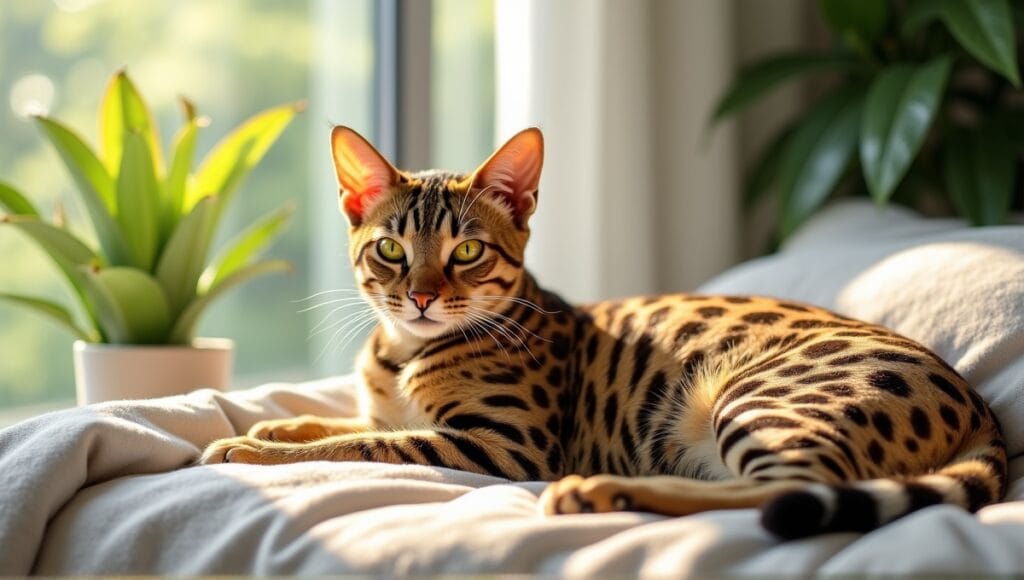
Exotic cats have unique nutritional requirements. They often need higher protein diets than domestic cats. Some may even require diets that closely resemble those of their wild counterparts. Consult with a vet who has experience with exotic cat nutrition.
There is a ongoing debate about commercial vs. raw diets. Some owners feed their cats raw diets and swear by it. Others feel comfortable feeding high-quality commercial foods designed for exotic cats. Each method has its pros and cons. The best option will depend on the cat and the owner’s capabilities.
Hydration is key in exotic cats. Many species of wild cats receive moisture from the prey they consume. In captivity, owners can help exotic cats consume more water by feeding wet food or using a water fountain. Proper hydration is important to kidney health and overall longevity.
Supplements are another factor in longevity. Omega-3 fatty acids and joint supplements are examples of supplements that might benefit certain exotic cats. However, always check with a vet before adding supplements, as overuse can have negative effects.
Feeding schedules and portion sizes are important. Some exotic cats do well on frequent small meals, while others prefer fewer large meals. Keep an eye on your cat’s weight and adjust the portion sizes up or down accordingly. Obesity can dramatically shorten an exotic cat’s lifespan.
Veterinary Care for Exotic Cats
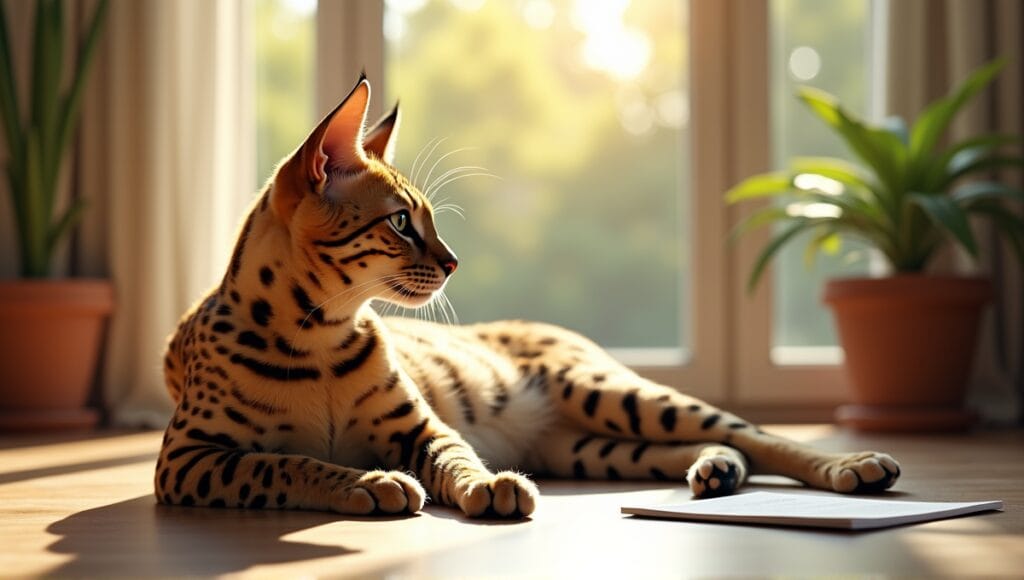
Specialized exotic vets are essential. These vets will know the specific needs of exotic cats and the health issues associated with each breed. They will also know the correct treatment for each breed. Therefore, finding a qualified exotic vet should be your top priority as an exotic cat owner.
Recommended frequency of checkups will vary by breed and age. In general, exotic cats require more frequent checkups than domestic cats. Most exotic cats need checkups twice a year as adults. However, kittens and senior cats will likely need more frequent checkups.
Common diagnostic tests include blood work, urinalysis, and imaging. These tests allow the vet to catch any health problems early. Some breeds may have specific tests the vet will recommend. For example, Bengals need regular heart scans.
Preventative care is also important. This includes vaccinations, parasite prevention, and dental care. The vet can recommend a custom preventative care plan for your exotic cat. By following this plan, you can significantly increase your cat’s lifespan.
Emergency preparation is important for exotic cat owners. Know where the nearest emergency vet with exotic experience is located. Keep a first aid kit at home. Educate yourself about common emergency signs in your breed of exotic cat.
Breeding Practices and Their Impact on Exotic Cat Lifespan

Ethical breeding is the most important thing to consider with exotic cats. Ethical breeders prioritize the health and genetic diversity of the cats. They do not breed cats with known health problems, which helps ensure the offspring are healthier and live longer.
Inbreeding can wreak havoc on a cat’s health and longevity. It significantly increases the chances of genetic health problems. Some exotic breeds have very small gene pools, making this a serious issue. Breeders can improve the genetic diversity of the gene pool by outcrossing to unrelated lines.
Genetic diversity is essential if we want exotic breeds to still be around in 100 years. By improving genetic diversity, breeders can avoid common inherited health problems. The cats will have stronger immune systems and live longer. Therefore, breeders should strive to maintain and improve genetic diversity within the breed.
Some health problems are the result of breed standards. While certain physical characteristics might be popular, they could also be unhealthy for the cat. Ethical breeders and breed associations are pushing to change the standard to prioritize healthy cats over a specific appearance.
Ethical breeding means health tests, genetic tests, and a selective approach to choosing mates. Additionally, ethical breeders provide ongoing support to the cat’s owner and are honest about any potential health problems in their cats. These practices make the cat healthier and live longer.
A Few Last Words
Exotic cats are intriguing animals with special requirements. Lifespan is highly variable among exotic cats and depends on breed genetics healthcare, and environment. You’re now equipped with the information you need to take excellent care of exotic cats. Just keep in mind that owning an exotic cat is a major responsibility. It requires commitment to specialized veterinary care and potentially legal responsibilities. Always put the welfare of these incredible animals above your own desires.


